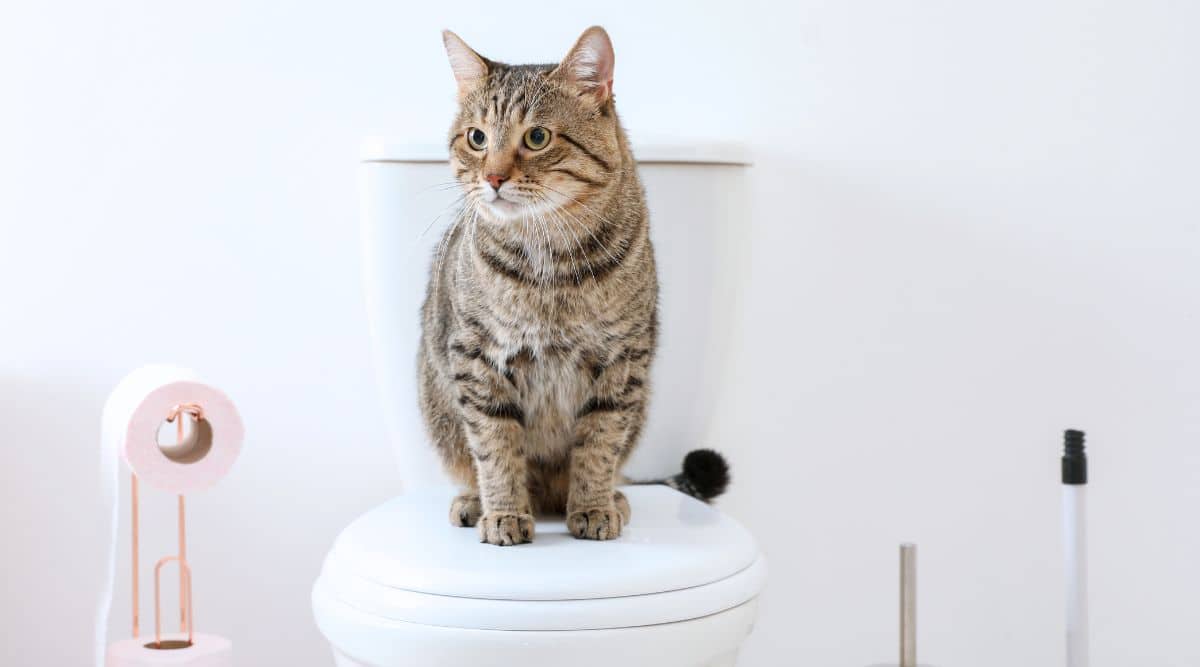Why You Shouldn't Flush Cat Poop Down Your Toilet - Preserve Your Plumbing Health
BookListed here below you can locate a bunch of exceptional additional info related to How to Dispose of Cat Poop and Litter Without Plastic Bags.

Introduction
As feline proprietors, it's essential to bear in mind how we deal with our feline pals' waste. While it may seem hassle-free to flush feline poop down the commode, this technique can have harmful repercussions for both the atmosphere and human health.
Alternatives to Flushing
Fortunately, there are safer and extra liable means to take care of feline poop. Think about the adhering to choices:
1. Scoop and Dispose in Trash
The most typical approach of disposing of cat poop is to scoop it right into a biodegradable bag and toss it in the garbage. Make certain to utilize a committed trash inside story and dispose of the waste promptly.
2. Use Biodegradable Litter
Choose eco-friendly pet cat litter made from products such as corn or wheat. These litters are environmentally friendly and can be safely taken care of in the garbage.
3. Bury in the Yard
If you have a yard, consider hiding cat waste in a designated area far from veggie yards and water resources. Be sure to dig deep sufficient to stop contamination of groundwater.
4. Mount a Pet Waste Disposal System
Invest in an animal waste disposal system particularly created for pet cat waste. These systems make use of enzymes to break down the waste, reducing smell and ecological impact.
Wellness Risks
Along with ecological concerns, purging cat waste can additionally posture health risks to human beings. Cat feces might have Toxoplasma gondii, a bloodsucker that can cause toxoplasmosis-- a possibly severe disease, especially for expectant ladies and individuals with damaged immune systems.
Ecological Impact
Flushing cat poop presents damaging pathogens and bloodsuckers into the supply of water, positioning a significant danger to aquatic ecosystems. These impurities can negatively influence marine life and concession water quality.
Verdict
Responsible animal possession prolongs past supplying food and sanctuary-- it also entails appropriate waste administration. By refraining from purging feline poop down the toilet and selecting alternative disposal techniques, we can minimize our environmental impact and safeguard human health and wellness.
Why Can’t I Flush Cat Poop?
It Spreads a Parasite
Cats are frequently infected with a parasite called toxoplasma gondii. The parasite causes an infection called toxoplasmosis. It is usually harmless to cats. The parasite only uses cat poop as a host for its eggs. Otherwise, the cat’s immune system usually keeps the infection at low enough levels to maintain its own health. But it does not stop the develop of eggs. These eggs are tiny and surprisingly tough. They may survive for a year before they begin to grow. But that’s the problem.
Our wastewater system is not designed to deal with toxoplasmosis eggs. Instead, most eggs will flush from your toilet into sewers and wastewater management plants. After the sewage is treated for many other harmful things in it, it is typically released into local rivers, lakes, or oceans. Here, the toxoplasmosis eggs can find new hosts, including starfish, crabs, otters, and many other wildlife. For many, this is a significant risk to their health. Toxoplasmosis can also end up infecting water sources that are important for agriculture, which means our deer, pigs, and sheep can get infected too.
Is There Risk to Humans?
There can be a risk to human life from flushing cat poop down the toilet. If you do so, the parasites from your cat’s poop can end up in shellfish, game animals, or livestock. If this meat is then served raw or undercooked, the people who eat it can get sick.
In fact, according to the CDC, 40 million people in the United States are infected with toxoplasma gondii. They get it from exposure to infected seafood, or from some kind of cat poop contamination, like drinking from a stream that is contaminated or touching anything that has come into contact with cat poop. That includes just cleaning a cat litter box.
Most people who get infected with these parasites will not develop any symptoms. However, for pregnant women or for those with compromised immune systems, the parasite can cause severe health problems.
How to Handle Cat Poop
The best way to handle cat poop is actually to clean the box more often. The eggs that the parasite sheds will not become active until one to five days after the cat poops. That means that if you clean daily, you’re much less likely to come into direct contact with infectious eggs.
That said, always dispose of cat poop in the garbage and not down the toilet. Wash your hands before and after you clean the litter box, and bring the bag of poop right outside to your garbage bins.
https://trenchlesssolutionsusa.com/why-cant-i-flush-cat-poop/

We were guided to that editorial about Can You Flush Cat Poo or Litter Down the Toilet? from an associate on our other web address. Don't hesitate to take the opportunity to promote this page if you enjoyed reading it. I take joy in reading our article about Can You Flush Cat Poo or Litter Down the Toilet?.
Visit Website